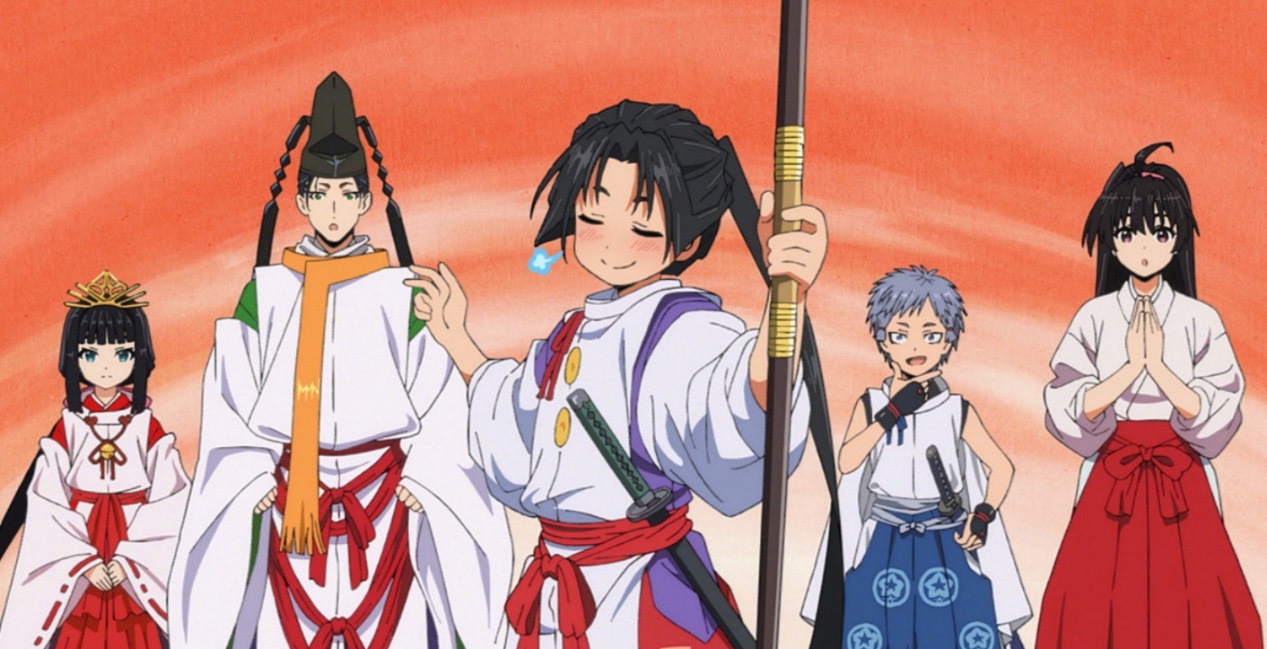Marvel’s newest movie, Black Panther, is many things at once. It’s the eighteenth film in the Marvel Cinematic Universe (MCU), a series of interconnected movies (and related TV series plus other media) that began with Iron Man in 2008 and has generated over thirteen billion dollars at the global box office (making it the most successful film franchise in history). But Black Panther is more than just a continuation of existing stories. It’s unlike any other superhero movie before it. In short, it is the blackest superhero movie ever made, and it depicts blackness in ways that no Hollywood movie before it has ever done.
For those who do not know the character, the Black Panther is the superhero alter-ego of King T’Challa of Wakanda, a fictional country in Africa. As much as T’Challa himself, Wakanda is the star of the movie, a fully-realized vision of an Africa that never was: never colonized by Europeans, never stripped of its resources, never subjugated. Not only is Wakanda independent and free, it is wealthy and extremely advanced thanks to deposits of a metal known as Vibranium. Technology in Wakanda isn’t just twenty-first century, it’s hundreds of years beyond that. To protect its people and its resources from outside encroachment, Wakanda cloaks itself behind elaborate holograms. The world at large sees another “Third-World” country with jungles, farmers and “cool textiles.” In reality, Wakanda is like a Star Trek planet founded by Africans.
The plot of the movie focuses on Wakanda’s status as a hidden jewel of wealth and technology, and whether Wakanda can or even should remain shrouded from the outside world. That question isn’t treated glibly, nor is it divorced from the history of the fallen world in which we actually live (as opposed to the Afro-futurist ideal of Wakanda). It plays out as a power struggle between different tribes and between different branches of the royal family. It includes plenty of action, but that action is driven by ideas and ideals to an extent that none of the other MCU films have been.
Co-written and directed by a black man, and starring a cast that is almost entirely black (and which spans the globe by including Americans, Brits, and Africans), Black Panther shows us sights we’ve never seen in a Hollywood movie, from the fierce female warriors sworn to protect Wakanda to the armored rhinos that charge into battle to the hidden city full of levitating trains, spaceships, holograms, nano-suits, magical herbs and, yes, really cool textiles. Out of all of the Marvel movies, this is the first one that will NOT give you the feeling that “we’ve been here before.” We haven’t. This is something new, fresh and exciting. It is optimistic, joyful, and beautifully, wonderfully black.
If Black Panther succeeds at the global box-office, which the early signs point to it doing, it has the potential to radically change the playing field in the movie industry. No other film of this scale has ever had this many people of color involved in its creation. No other tent pole movie has ever had a story in which white people were, at most, incidental. No, they aren’t excluded from the film, nor is it even slightly “anti-white” (though it is most assuredly anti-colonialist). They just aren’t the focus of the plot. This movie may finally stand as the irrefutable proof that they don’t always NEED to be the docs point; that fantasy, escapism, excitement and heroism can and should come in many guises, and show many hues. The previous MCU films have almost all been good, or at the very least thoroughly competent (hello, Ant Man). Black Panther is the first MCU film that truly MATTERS.
Written by: Wayne Allen Jones

Movie
Movie Review: Katamarayudu

Directed by: Kishore Kumar Pardasani
Written by: Siva
Studio: North Star Entertainment
Runtime: 149 minutes
Genre: Action, Drama
Cast:
Pawan Kalyan as Katamarayudu
Shruti Haasan as Avanthika
Siva Balaji as Katamarayudu’s younger brother
Ajay, Kamal Kamaraju, Chaitanya Krishna in supporting roles
Katamarayudu is a Telugu-language remake of the Tamil film Veeram. This movie blends family drama with high-octane action sequences, delivering a narrative that is quintessentially rooted in southern Indian cinema’s flair for heroism and larger-than-life characters.
The story revolves around Katamarayudu, a righteous and fiercely protective elder brother who has dedicated his life to looking after his younger siblings. Known for his aversion to marriage, his life takes a turn when Avanthika, a poised and graceful woman, enters his life. The movie skillfully combines lighthearted romance, brotherly camaraderie, and intense action sequences, creating an engaging watch for the masses.
Kishore Kumar Pardasani delivers a visually grand spectacle while staying true to the essence of its Tamil original. While the screenplay lacks novelty, it compensates with fast-paced action and emotional beats. The dialogues, although simple, hit the right chords when it comes to showcasing family bonds and love.
Pawan Kalyan is the heart of the film. His screen presence and charismatic portrayal of Katamarayudu dominate every frame. Shruti Haasan offers a refreshing on-screen presence, and her chemistry with Pawan Kalyan adds charm to the narrative. The supporting cast, especially the actors playing the brothers, do justice to their roles, adding depth to the storyline.
The film boasts meticulously choreographed fight scenes, which are a visual treat for action lovers. Anup Rubens’ background score and songs elevate the emotional and action-packed moments. His mass appeal and command over action and emotion anchor the movie effectively.
The film adheres to a conventional template, leaving little room for surprises. At 149 minutes, the film feels stretched, especially in the second half.
Katamarayudu is a feast for fans of Pawan Kalyan and action-packed family dramas. It carries the essence of mass entertainment but doesn’t break new ground. While it caters to the sensibilities of Telugu cinema audiences, others might find its predictability a drawback.
Rating: 8/10 Fans of Pawan Kalyan and high-energy action films will undoubtedly enjoy this one, but those looking for a novel story might find it wanting.
Movie
You Are Not Ready for ‘Marcel the Shell with Shoes On’

“Do you want to watch a film with me? It’s called Marcel the Shell with Shoes On”
“What?”
“It’s about a little shell named Marcel who wears shoes.”
“…”
And that about sums it up! It’s the blob of a week between Christmas and New Year so it was the optimum time to watch a very surreal film recently added to UK Netflix.
Released in 2021 (a blob of a year) Marcel the Shell with Shoes On is about a one-inch-tall shell called Marcel who lives with his grandmother, Connie, in an Airbnb. Marcel usually stays out the way of the house’s various guests as he utilizes his only means of fast transportation (a tennis ball) and walks his pet lint on a string (Alan). This is until a documentary filmmaker named Dean, who is staying at the Airbnb, discovers Marcel and his unique lifestyle.
As filmmakers are wont to do Dean begins to film interviews with Marcel, consequently we get an insight into Marcel’s world both inside and out. Yes, Marcel is a stop-motion hermit crab shell with surprisingly expressive googly eyes but he feels very human. I was unsure about Marcel’s age and gender because he sounds a lot like Lisa Simpson, I did even check that Marcel wasn’t voiced by Yeardly Smith. But Marcel is voiced superbly by Jenny Slate. Marcel comes off as quite childlike with his wide-eyed optimism and naivety (he is a shell I suppose). Yet, like many children, Marcel will utter something so profound he will seem more of a fossil than a shell. When Dean uploads Marcel’s interviews onto YouTube Marcel of course becomes a viral sensation. Marcel reads the comments on his videos, using his tiny shoes to activate the laptop touchpad, which is just adorable! Despite his obvious popularity, Marcel remarks; “It’s an audience. It’s not a community.” Which just drives a stake into the heart of social media.
No, Marcel does not become a teeny-tiny-TikToker, he in fact uses the internet to find his lost community. The house used to be full of anthropomorphic objects including Marcel’s own shell family. They had been living in the house for generations, Connie herself came from the garage travelling by coat pocket to the main house; it’s why she has an accent. Among the community there are anthropomorphic pieces of cereal and because the internet notices this stuff; a tampon! An unfortunate event occurred and the community were accidentally removed from their home one tragic night, leaving Marcel and Connie on their own.
Being an A24 film I knew it would get deep. Marcel’s journey gives the audience a unique perspective of life, death, and community. In a modern world where we are more connected than ever but loneliness has been recognized as a universal health crisis. We could all learn something from this talented little shell and his grandmother. Be like Marcel and don’t get sanded down by life, stay connected to your community and know you are not just rattling around on your own!
It’s a beautifully poignant and quirky film. Despite its metaphysical and existential content, the film doesn’t take itself too seriously. Whether it’s Marcel making rope by winding together the pubic hairs he finds in the drain (he calls them ‘hardy hairs’) or sleeping on slices of bread referring to them as his ‘breadroom’. The film is painstakingly detailed and you can see its roots in a short film. It’s a delightful adventure that has something far bigger to say than its minuscule protagonist.
Five stars.
Streaming
Top Five anime in 2024

As an anime enthusiast and entertainment journalist, I’ve curated a list of the top five must-see anime series of 2024. These selections showcase the diversity and creativity that define the medium, offering compelling narratives and stunning animation.

Delicious in Dungeon
This series combines culinary arts with fantasy adventure, following a group of dungeon explorers who cook and eat the monsters they defeat. The unique premise and mouth-watering depictions of fantasy cuisine make it a standout this year. Kaiju No. 8
Set in a world plagued by kaiju attacks, the story centers on a protagonist who gains the ability to transform into a kaiju himself. The series offers a fresh take on the kaiju genre, blending action with deep character development.

Kaiju No. 8
Set in a world plagued by kaiju attacks, the story centers on a protagonist who gains the ability to transform into a kaiju himself. The series offers a fresh take on the kaiju genre, blending action with deep character development. Solo Leveling
Adapted from the popular web novel, this anime follows a weak hunter who becomes the world’s strongest after a mysterious system grants him unique abilities. Its dynamic animation and gripping storyline have captivated audiences worldwide.

Solo Leveling
Adapted from the popular web novel, this anime follows a weak hunter who becomes the world’s strongest after a mysterious system grants him unique abilities. Its dynamic animation and gripping storyline have captivated audiences worldwide. The Elusive Samurai
Set in feudal Japan, this historical series follows a young samurai who uses his agility and wit to survive in a turbulent era. The anime’s blend of historical context and engaging action sequences has garnered critical acclaim.

The Elusive Samurai
Set in feudal Japan, this historical series follows a young samurai who uses his agility and wit to survive in a turbulent era. The anime’s blend of historical context and engaging action sequences has garnered critical acclaim. Dragon Ball Daima
The latest installment in the iconic Dragon Ball franchise, this series introduces new transformations and challenges for Goku and his friends. Its high-octane battles and nostalgic elements appeal to both longtime fans and newcomers.

Dragon Ball Daima
The latest installment in the iconic Dragon Ball franchise, this series introduces new transformations and challenges for Goku and his friends. Its high-octane battles and nostalgic elements appeal to both longtime fans and newcomers. These anime series exemplify the innovation and storytelling prowess that continue to drive the medium’s global popularity. Whether you’re a seasoned otaku or new to anime, these titles are essential viewing for 2024.


